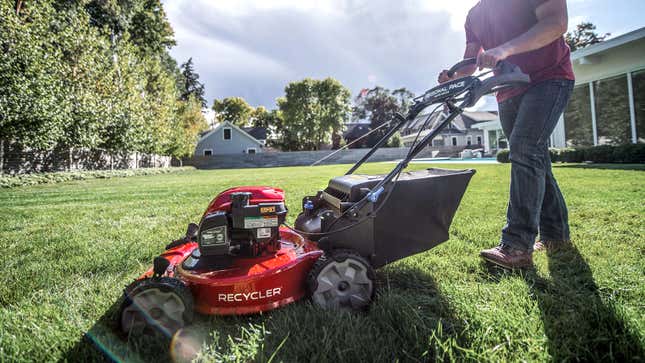
California will prohibit the sale of small off-road engines — like the kind “used primarily in lawn and garden equipment” — by 2024 at the latest, per a new bill approved by Governor Gavin Newsom last weekend.
Assembly Bill No. 1346 reads as follows:
This bill would require the state board, by July 1, 2022, consistent with federal law, to adopt cost-effective and technologically feasible regulations to prohibit engine exhaust and evaporative emissions from new small off-road engines, as defined by the state board. The bill would require the state board to identify and, to the extent feasible, make available funding for commercial rebates or similar incentive funding as part of any updates to existing applicable funding program guidelines to local air pollution control districts and air quality management districts to implement to support the transition to zero-emission small off-road equipment operations.
It’s important to clarify that the law will not ban the use of products people already own, like lawn mowers and leaf blowers, that employ small internal-combustion engines. Rather, it will prevent new units from being sold. It also aims to provide incentives for commercial users, to ease the transition to alternatives that emit no pollutants. There’s a stipulation that whatever regulations come into place are “cost-effective” as well:
By July 1, 2022, the state board shall, consistent with federal law, adopt cost-effective and technologically feasible regulations to prohibit engine exhaust and evaporative emissions from new small off-road engines, as defined by the state board. Those regulations shall apply to engines produced on or after January 1, 2024, or as soon as the state board determines is feasible, whichever is later.
If you assume that small engines comprise an insignificant part of the air pollution problem, the data says you’re wrong. Small engines in the 16.7 million lawn equipment products in California were responsible for more nitrogen oxide and volatile organic compound pollution last year than the 35 million passenger cars and light- and heavy-duty trucks registered in the state, according to Ars Technica.
The lack of controls on these small engines means they’re responsible for surprisingly disproportionate emissions despite their size; the California Air Resources Board estimates that an hour of leaf blower use “emits smog-forming pollution comparable to driving a 2016 Toyota Camry about 1100 miles.” What’s more, some makers of small engines, like Kawasaki, haven’t always followed the state’s existing laws.
And it’s not like electric alternatives aren’t already present on the market. Electric lawn mowers, for example, are available from a range of manufacturers and have improved in power and range over time to rival their gas-powered counterparts. Perhaps those with larger yards may have to buy a second battery to swap in mid-mowing session, but the majority of homeowners shouldn’t notice major changes to their routines.
Commercial use cases will likely differ though, so it’s encouraging to see the bill, as it’s been authored, state that CARB will take the unique requirements of businesses into consideration. There might be some friction, but if any progress is going to be made on the very real climate emergency we’re in, every little bit must be done.